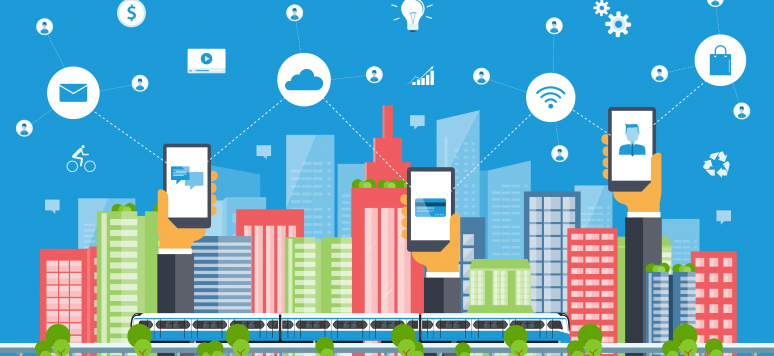From ancient Babylonian tablets to Ada Lovelace’s pioneering work in 1843, algorithms have evolved to shape our modern world. Fast forward to today, where Artificial Intelligence, led in part by innovations like ChatGPT, has propelled us into an era where algorithms reign supreme. In this piece, we’ll explore the profound impact of algorithms on urban mobility. We’ll uncover how they revolutionize the way we move within cities, making transportation more accessible, and optimizing the use of existing mobility infrastructure.

Impact of Algorithms on Society
The relationship between algorithms and artificial intelligence (AI) is fundamental. To build AI systems, two key components are necessary: algorithms and data. Algorithms serve as the backbone of AI, providing the logical sequences of steps needed to solve problems or perform tasks. Essentially, they are sets of instructions that guide machines on what actions to take given certain inputs. On the other hand, data fuels AI by providing the necessary information for algorithms to learn and adapt. Through exposure to vast amounts of data, AI systems can refine their algorithms, improving their decision-making abilities and overall performance.
In our current technological landscape, we’re surrounded by devices that execute countless algorithms, often invisibly and incomprehensibly to most users. These algorithms power various aspects of our daily lives, from search engines and social media platforms to autonomous vehicles and smart home devices.
Algorithms have become integral to our daily lives, impacting us in countless ways, from suggesting routes for travel to recommending movies or translating languages. They possess the potential to shape outcomes on a vast scale, for better or worse. They aid in medical predictions, agricultural adaptations to climate change, and even in understanding complex diseases like Alzheimer’s or Parkinson’s. However, as we increasingly rely on algorithms for significant decisions, understanding their inner workings and the ethical dilemmas they present becomes crucial. Israeli scholar Yuval Noah Harari, in his book “21 Lessons for the 21st Century,” highlights the potential future where complex computational calculations, understood by only a few, dictate major political, economic, and social decisions, potentially eroding individual liberties.
Route Planning Algorithms
A connected mobility solution offers users the convenience of planning, booking, and paying for their journeys within a single application, integrating various modes of transportation. One notable feature is the multimodal route planner, which utilizes an advanced algorithm to amalgamate real-time information from diverse integrated mobility services. The route planning algorithms gather data from multiple sources, including regular transportation operators for schedule and pricing information. They also incorporate dynamic, real-time data from various sources, such as updates on stop times, service alerts, and the availability of resources like bicycles, scooters, or carsharing vehicles. To streamline information from different operators and services, the algorithm organizes and structures data, ensuring a seamless user experience and facilitating the integration of new operators without disrupting existing functionality. Furthermore, the algorithm personalizes results based on user preferences and the available mobility options. Users can prioritize factors like cost-effectiveness, speed, healthiness, or sustainability, tailoring the algorithm to suit their individual mobility preferences.
In summary, intelligent algorithms play a vital role in revolutionizing urban mobility by offering users a smooth transportation experience. By efficiently integrating diverse mobility services and accommodating user preferences, these algorithms contribute to more accessible and customizable transportation solutions. Understanding and addressing the ethical challenges associated with such algorithms are crucial in leveraging technology for the collective benefit of society.
Source: Meep
